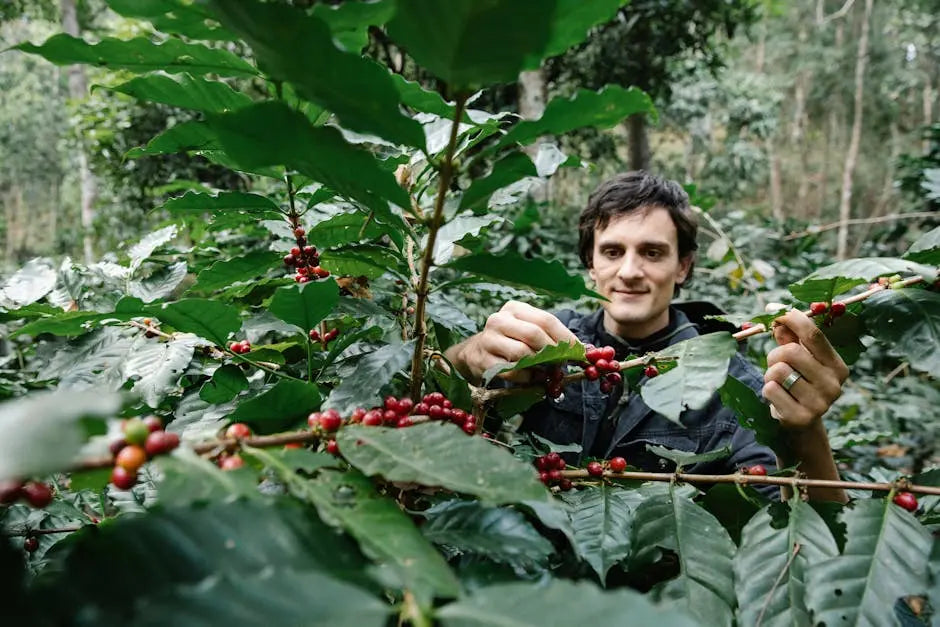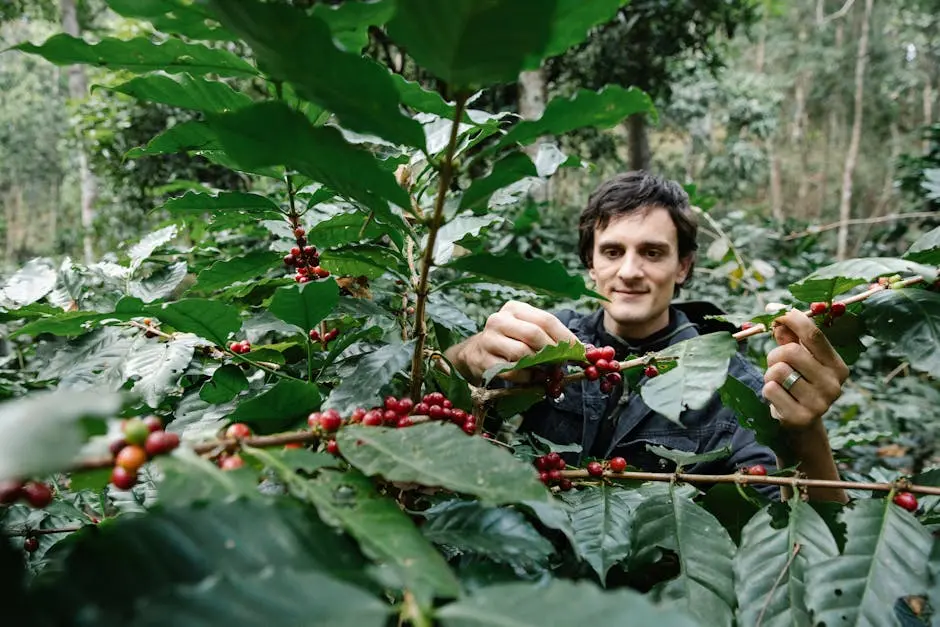How Is Coffee Sourced Sustainably?
June 23, 2025 – Shopify API

Coffee is one of the most beloved beverages worldwide, but how it’s sourced can have significant impacts on the environment and communities. In this guide, we’ll explore sustainable coffee sourcing and why it matters.
Understanding Sustainable Coffee Practices
Learn about what sustainable coffee sourcing means and its key principles.
Sustainable coffee practices are grounded in environmental, social, and economic considerations. They aim to minimize negative impacts on the planet, ensuring that coffee cultivation doesn’t contribute to deforestation or loss of biodiversity. This means that sustainable farming methods often include shade-grown coffee systems, which help maintain ecosystems and preserve the habitats of local wildlife.
But sustainability isn’t just about the environment. It’s also about offering fair wages and improving the living conditions of farmers. Many sustainable coffee initiatives emphasize supporting community development and social equity. This holistic approach nurtures both the earth and the people who work it.
Who Are the Stakeholders in Coffee Sourcing?
Discover the various players involved in the coffee supply chain, from farmers to consumers.
The coffee supply chain is a complex network that involves multiple stakeholders, including farmers, importers, roasters, retailers, and ultimately, consumers. At the heart of this chain are the farmers who cultivate the coffee. These individuals, often working in cooperatives, play a critical role in ensuring quality and sustainability.
Importers act as the bridge between farmers and roasters, helping to navigate the logistics of shipping and regulatory compliance. They ensure that sustainable practices are maintained throughout the process. Once the coffee reaches roasters, the focus shifts to enhancing flavors while maintaining the coffee’s integrity, often by adhering to specific sustainability certifications.
Consumers, on the other hand, have the most power to influence this chain. By choosing sustainably sourced coffee, they signal to the entire supply chain that sustainable practices are valued and necessary.
Key Certifications to Look For
Explore the certifications that indicate sustainable sourcing, such as Fair Trade and Rainforest Alliance.
When searching for sustainably sourced coffee, it helps to look for certifications that clearly indicate ethical practices. Two prominent examples are Fair Trade and Rainforest Alliance. Fair Trade certification ensures that farmers receive fair compensation for their crops, promotes sustainable farming practices, and encourages community development.
Rainforest Alliance certification, on the other hand, focuses on environmental conservation and the well-being of farmers, assuring consumers that their coffee comes from rainforests that are protected and nurtured. Both certifications provide a level of assurance that the coffee is not only delicious but also produced in a way that respects people and the planet.
Impact on Farmers and Communities
Understand how sustainable sourcing practices benefit coffee farmers and their communities.
Sustainable coffee sourcing has a profound impact on coffee farmers and their communities. By committing to fair trade and ethical practices, coffee growers gain access to better wages, which can dramatically improve their quality of life. Increased income allows families to invest in education, healthcare, and infrastructure, fostering community development.
Additionally, sustainable practices often involve training and resources that enhance farming methods, providing farmers with the knowledge to improve crop yield while preserving the environment. These benefits create a ripple effect, empowering communities and strengthening local economies. The holistic approach to coffee production makes it clear that sustainability transcends just the coffee cup; it’s about building a better future.
How to Choose Sustainable Coffee
Tips for consumers on how to select coffee that is sourced sustainably.
Selecting sustainable coffee may seem overwhelming at first, but it can be simplified. Start by looking for coffee brands that clearly advertise their sustainability practices. Check for third-party certifications like Fair Trade, Organic, or Rainforest Alliance on the packaging—it’s a quick way to identify responsibly sourced products.
Another useful tip is to research brands and their sourcing stories. Many companies today are proud of their commitment to sustainability and actively share their practices in detail. Engaging with local roasters or small-batch coffee producers often leads you to discover unique sustainable options that are equally delicious.
The Role of Consumers in Sustainability
Discuss the impact consumers can have on encouraging sustainable coffee sourcing.
Consumers play a pivotal role in encouraging sustainable coffee sourcing. Every purchase is a vote—voting for the kind of world we want to create. By choosing sustainably sourced brands, consumers can help drive demand for ethical practices within the coffee industry. This increased demand can lead to a more substantial commitment to sustainability from farmers and companies alike.
Moreover, consumers can contribute to the conversation surrounding sustainability by sharing their knowledge and enthusiasm with others. This creates a ripple effect, encouraging friends, family, and the community to consider where their coffee comes from and how it’s produced. Together, through informed choices and advocacy, consumers can be the change they wish to see in the coffee industry.
The Importance of Sustainable Coffee Sourcing
Sourcing coffee sustainably is vital for protecting our planet and supporting coffee-growing communities. By choosing sustainably sourced coffee, you can enjoy your cup of joe while contributing to a better world.


